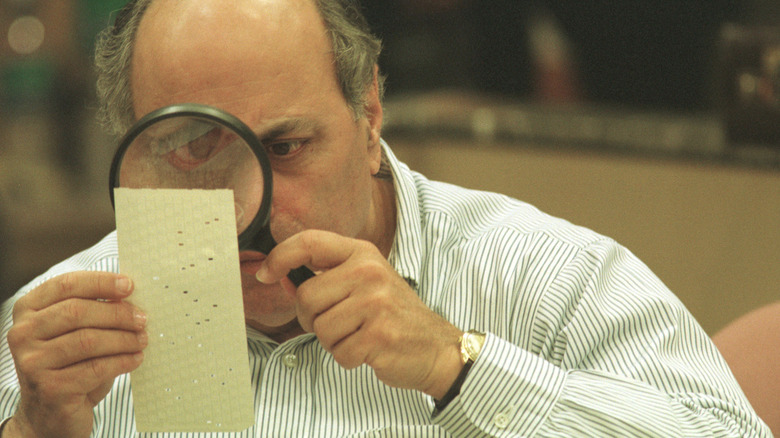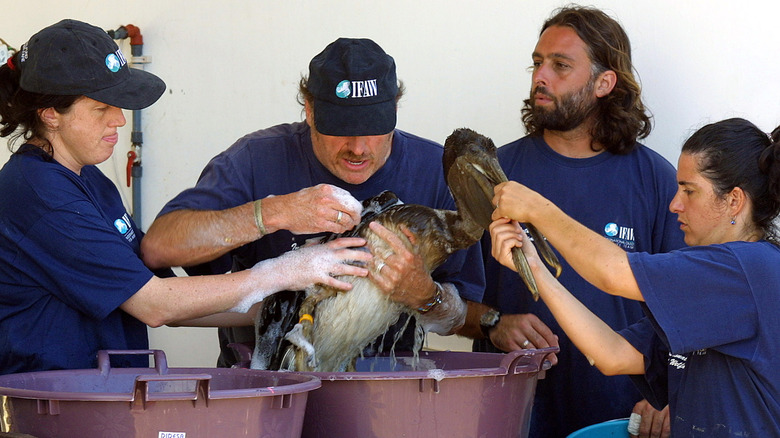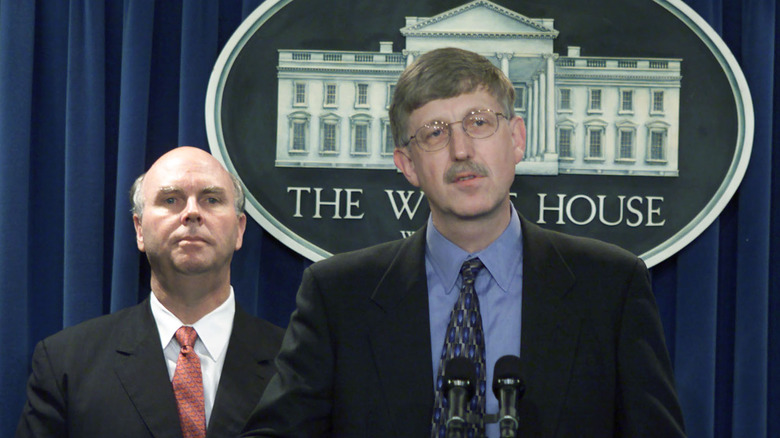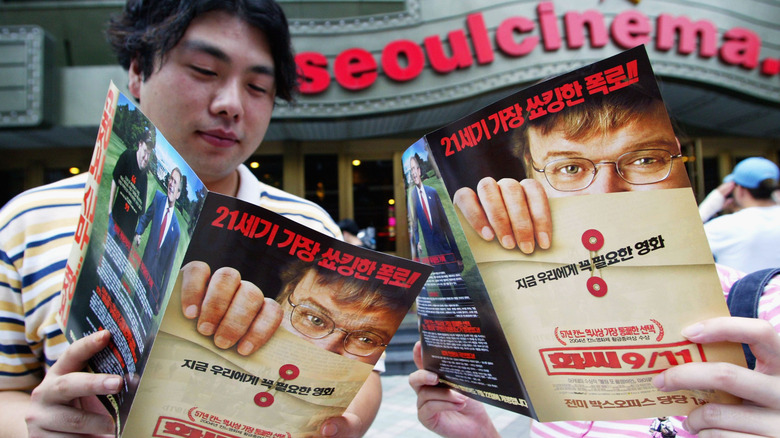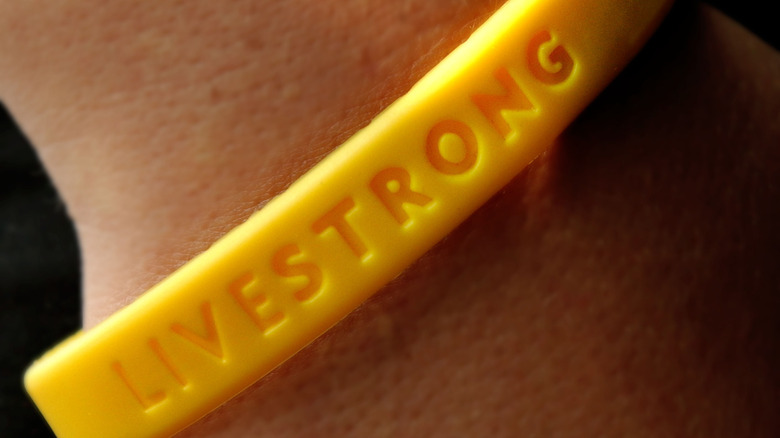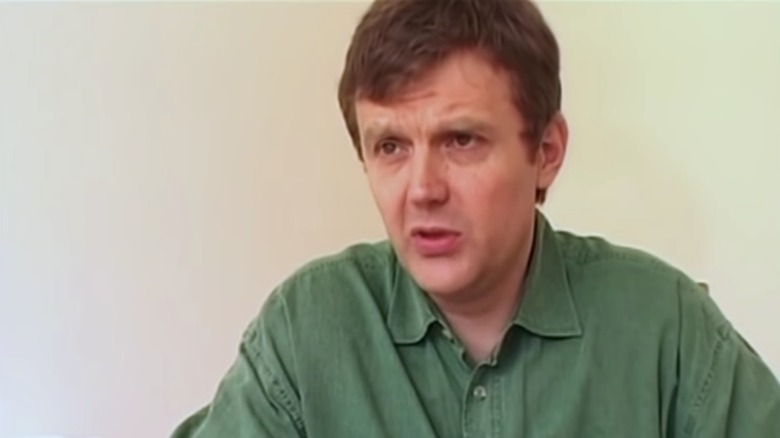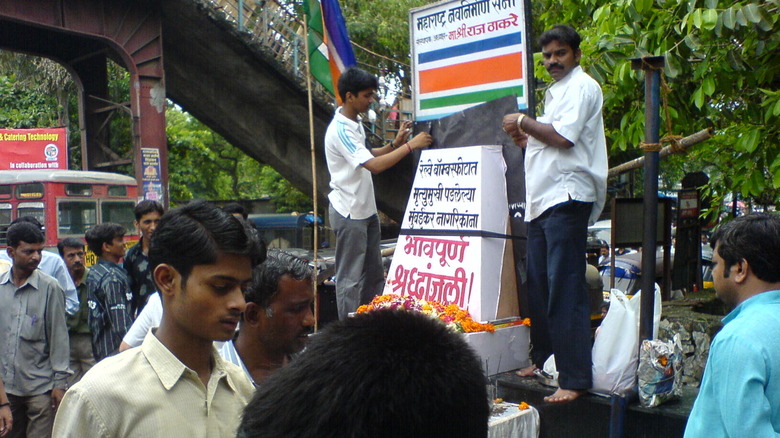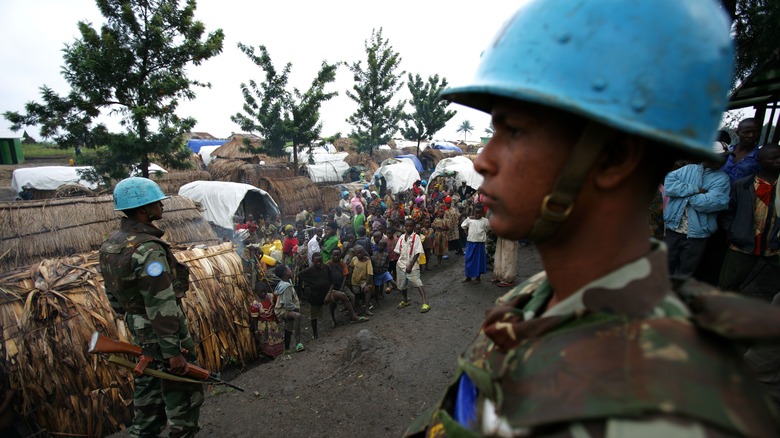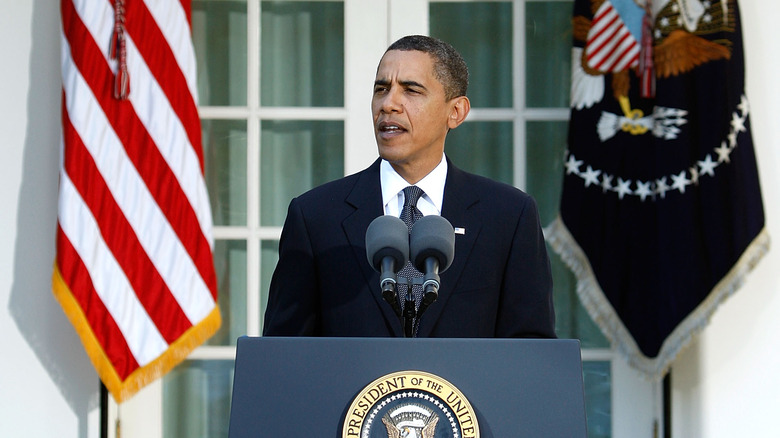Big Moments From The 2000s You Forgot About
If you are old enough to remember the turn of the millennium, it is likely that you remember the year 2000 starting as something of an anticlimax, with the much feared "Y2K bug" failing to bring the world's computer systems offline as certain groups predicted at the time.
But soon, the optimism that heralded the safe arrival of the year 2000 evaporated in the face of seismic events that would see the new decade become one of the most turbulent periods in recent memory. Thousands of people would go on to die in attacks on the World Trade Center and the Pentagon attack on September 11. These events set in motion a series of geopolitical events that would come to define the decade, transforming much of the world thereafter. Similarly, major events such as the Enron scandal, Hurricane Katrina, and the 2004 tsunami in the Indian Ocean followed with disastrous effects — some of which are still being felt today.
But what major news stories of the 2000s may we need reminding of?
A ballot scandal in 2000
Twenty years ago, the U.S. found itself in the midst of a contentious presidential election, which ultimately gave Republican nominee George W. Bush the win over his Democratic opponent Al Gore. As reported by NPR, the presidential race in 2000 was incredibly tight. Exit polls conducted by various news outlets and polling organizations projected that Gore, who had won the popular vote, was in line to win in the Electoral College through victories in major states such as Pennsylvania and Florida.
However, it turned out that Gore's popular leads failed to translate into Electoral College victories and the presidential election came to hinge upon a single state: Florida. The result of the election in the state was too close to call, resulting in a protracted and agonizing series of recounts with the entire presidency in the balance. In the end, it was declared that Bush had narrowly won in the state, beating his opponent by only 537 votes from an electorate of around 6 million. Bush would become president despite losing the popular vote.
The 2001 Galapagos oil spill
Despite major advances in infrastructure and supply chain technology, oil spills have continued to plague the natural world in the 21st century, including the Deepwater Horizon oil spill, which caused serious damage to the coast of the Gulf of Mexico in 2010. However, humanity had been given a salient warning concerning the ongoing dangers of oil spills nearly a decade prior when an oil tanker named the Jessica, which was carrying 243,000 gallons of diesel collided with the coast of Ecuador's Galapagos Islands in January 2001.
As The Guardian reported, experts were deeply concerned the spill would have long-lasting adverse effects on the island's famously diverse wildlife. The islands are well known as the place in which the British naturalist Charles Darwin found inspiration to come up with his theory of evolution.
A February 2001 report on the oil spill revealed that in the end, only a few thousand gallons of oil affected the Galapagos Islands themselves, thanks to recovery teams that were quickly assembled to limit the extent of the damage suffered by local flora and fauna. Reports in New Scientist the following year described the extent of the spill as "relatively small." However, the influx of oil had repercussions for some specific species of island wildlife, including the Galapagos Iguana, whose population sadly declined by more than 60%.
The launch of Myspace
Today it is almost impossible to imagine a world without social media, but in the 2000s, the new technology was in its infancy. Many experimental networking sites were competing to become the definitive platform in what was starting to become known as "web 2.0."
Before Facebook became the biggest social media platform in the world, the definitive website for networking with family and friends was Myspace. Launched by developers Tom Anderson and Chris DeWolf in 2003, Myspace gained an edge over competitors by actively encouraging musicians and creatives to share their work and build fan bases on the site, according to Britannica. (Users were also allowed to select a song to post on their profile.)
Though Myspace's creators sold the site for $580 million in 2005, the website traffic went into terminal decline when users began migrating to Facebook over the next several years. Myspace, which was at one time the biggest social media website in the world, never recovered (via Forbes). However, in recent years, it has become clear that Myspace was hugely influential for subsequent generations of tech startups that came in its wake.
The launch of the iPod
Along with cell phones, the 2000s saw the rise of another pocket electronic device: the MP3 player, which for the first time offered music fans the chance to carry music around in units no bigger than a wallet. Although many companies had released popular MP3 players during the late 1990s, none were as impactful in bringing the new technology to the mainstream as Apple's iPod, which first launched in the United States in October 2001 (via The Conversation). On the 20th anniversary of the launch of the first iPod, Apple's new MP3 player was released on the heels of the emergence of peer-to-peer file-sharing sites such as Napster and Limewire that allowed users to easily (and illegally) download an assortment of songs.
The Apple iPod was a ground-breaking piece of technology that changed the music industry landscape forever. However, the iPod's run was short-lived. In 2007, the company announced the arrival of the iPhone, effectively making dedicated MP3 players such as the iPod obsolete.
The Human Genome Project
For many, the biggest scientific event of the 21st century was the opening of CERN's Large Hadron Collider in 2008, which set the scene for the discovery of the Higgs boson particle (also known as the "God particle) and would go on to have a profound effect on humanity's understanding of particle physics.
However, there was another major scientific event in the 2000s: the completion of the Human Genome Project in 2003. As noted by the National Human Genome Project Institute, the project was a collaborative effort between international scientists to sequence the human genome for the first time. In 2003, it was announced that this goal have been achieved to a degree of 90%, while the project had also investigated genomes from several other organisms, including the mouse, the nematode worm, and the fruit fly. Although the project was projected to cost a whopping $3 billion, the importance of its work in future advancements in fields such as medicine has been incalculable.
Fahrenheit 9/11
Few people today will be unaware of the appalling attacks on the World Trade Center in New York and the Pentagon that shook the nation on September 11. But two decades after the attacks, it may surprise younger readers to learn that one of the most seminal chronicles of its aftermath came in the form of a satirical documentary: "Fahrenheit 9/11," a 2004 film by Michael Moore.
As noted by Philosophy Now, Michael Moore was already a well-respected documentary maker at the turn of the new millennium, commended for his well-received movie "Roger and Me." But "Fahrenheit 9/11" made Michael Moore one of the most notable satirists of the decade. The documentary was highly critical of George W. Bush, his administration, and the war on terror that the United States spearheaded in the Middle East. The movie was a huge success, winning Moore the Palme d'Or at the Cannes Film Festival and making more than $100 million at the box office. The film was also highly influential in shaping Americans' attitudes toward their president in the years that followed. A study published in the journal Peace and Conflict reported that Fahrenheit 9/11 directly affected viewers' opinions of Bush and their voting intentions thereafter.
The Livestrong campaign
Elite cyclist Lance Armstrong became somewhat of a pariah since evidence of his drug use came to light, but in the 2000s Armstrong was hailed as a hero for his sporting achievements, including winning the Tour de France after receiving cancer treatment. He was also heralded for his philanthropy, becoming the figurehead for a charity campaign named after him that would raise roughly $500 million.
Livestrong — originally called the Lance Armstrong Foundation — was founded in 1997 to support people with cancer and fund medical research. The foundation was an immediate success but reached new heights in 2004, when, in partnership with Nike, Livestrong began a campaign selling yellow rubber wristbands emblazoned with the name of the charity, according to The Atlantic. With Armstrong himself highly visible as a Tour de France competitor, the campaign became huge and 80 million wristbands were sold.
Viral charity campaigns such as the Ice Bucket Challenge became more common as social media hit the mainstream in the following years, but in 2004, the cut-through that the Livestrong campaign achieved with its bracelets was unprecedented. Though Armstrong has since abdicated his role at the charity in the wake of his blood doping, Livestrong has continued to raise funds for people with cancer.
The Ted Haggard scandal
Throughout the 1990s and mid-2000s, evangelical pastor Ted Haggard was one of the bigger names in American religion. After moving to Colorado Springs and starting a church in his basement with a congregation of just 22, Haggard saw his number of followers grow and grow. Per The Guardian, he soon established the New Life Church, which by the new millennium saw him preaching to around 14,000 people every week.
But in 2006, Haggard's empire came crashing down with the revelation that the married pastor had been a paying client of a male sex worker, who claimed the two had also taken methamphetamine. The news outraged his evangelical followers, and Haggard stepped down from the New Life Church soon after, according to Religion News. Though Haggard returned to preaching in 2010 with the foundation of the St. James Church in Colorado Springs — claiming to have achieved "spiritual restoration" and asking for forgiveness from the evangelical community that once revered him — multiple new allegations about his inappropriate behavior towards men and boys continued to emerge.
If you or anyone you know has been a victim of sexual assault, help is available. Visit the Rape, Abuse & Incest National Network website or contact RAINN's National Helpline at 1-800-656-HOPE (4673).
The killing of Alexander Litvinenko
The Russian invasion of Ukraine in February 2022 brought the two countries into international attention daily, but underhand Russian aggression has been consistent throughout the 21st century. In the 2000s, this was demonstrated by the horrifying death of Alexander Litvinenko in 2006.
As reported by DW, Litvinenko was a former Russian spy who had worked many years at the FSB, the successor of the Soviet Union's KGB. Litvinenko become a whistleblower and claimed the FSB incited a series of terror attacks that led to the subsequent conflict in Chechnya and the ascension of Vladimir Putin to the presidency. The Kremlin tempted to silence Litvinenko in a flurry of criminal cases, but the whistleblower managed to escape Russia and seek political asylum in London. However, Litvinenko was later hospitalized following a meeting with two Russian businessmen, who, according to a British investigation, were later found to have spiked Litvinenko's tea with a deadly radioactive substance called polonium-210. He was dead within weeks.
The 2006 Mumbai train bombings
Though the terror attacks on the World Trade Center and the Pentagon will be hard-forgotten in collective American memory, the United States was not the only country to suffer horrifying major attacks on innocent civilians in the 2000s.
One of the most horrific incidents to occur during the decade occurred in Mumbai, India, during rush hour on an otherwise normal working day on July 11, 2006, in what would become known as "7/11." According to the Free Press Journal, the sprawling Indian metropolis plunged into chaos following a series of explosions that shook the city's public transportation network. The blasts were a result of bombs that had been hidden on subway trains inside pressure cookers. They killed at least 189 people and 800 others were injured. Investigators blame the attacks on militants from nearby Pakistan and, though several people have since been sentenced to death for their involvement in the crime, the exact circumstances underpinning the fatal bombings are still unclear.
The failed end of the Second Congo War
Though the war on terror fought in Afghanistan and Iraq in the aftermath of the September 11 terror attacks remains the most prominent conflict of the 2000s in the minds of many Americans, one of the worst conflicts in living memory was reportedly coming to a close around the same time in Central Africa: the Second Congo War.
According to the Global Conflict Tracker, the Second Congo War erupted in the late 1990s as a direct result of the huge influx of refugees into the country following the Rwandan genocide in 1994. The fighting was characterized by ongoing deadly skirmishes between armed rebel groups and troops controlled by the weakened Congolese government. It has been reported that some 3 million people may have perished in the conflict before its official end in 2004, which was precipitated by a peace deal in 2002 and an attempted transitional government being installed the following year. The estimated death toll makes the Second Congo War the deadliest world conflict since World War II, according to NBC News. Sadly, in the years following the proposed peace deal, militia groups believed to have been backed by neighboring Rwanda continue to emerge in the Democratic Republic of Congo, attacking civilians and destabilizing the country.
Obama wins the Nobel Peace Prize
The victory in the 2008 U.S. presidential election of Barack Obama was hailed by many to be one of the most historic election results in American political history. In addition to being the country's first Black president, Obama also represented a swing to the left following George W. Bush's eight-year presidency and a new potentially progressive age in American history.
As the official website for the Nobel Peace Prize notes, Obama was named the recipient of the award just eight months into his presidency. The Nobel committee said the new president was a deserving winner primarily because he "Inspires hope for a better future." While the committee highlighted Obama's quick work in promoting international cooperation and his push for nuclear disarmament, the wording of the committee's announcement seems to suggest Obama had won the Nobel Peace Prize, not for his accomplishments so far, but for what he had the potential to do.
The choice was, and remains, controversial. Obama himself was humble in his acceptance speech upon receipt of the award. He did seem to concur with many critics that he was an unconventional choice by highlighting that at the time his win was announced, he was leading the United States through two foreign wars. Years later, Nobel Prize secretary Geir Lundestad admitted that he regretted awarding the illustrious award to Obama, per the BBC.

